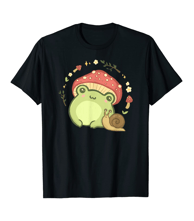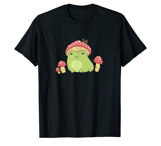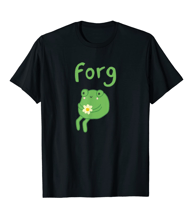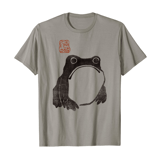The Kawaii World of Frogs
In the ever-evolving realm of fashion, there are trends that come and go, and then there are those that capture hearts, transcending borders and cultures. The kawaii culture, a term that originates from the Japanese word for "cute," is one such phenomenon. It's not just a trend; it's a lifestyle, an expression, and for many, a form of art. From Tokyo's bustling streets to New York's avant-garde fashion districts, the influence of kawaii can be seen in storefronts, runways, and everyday outfits.
FROGSKAWAIIJAPAN
9/18/2023


Table of Contents
Introduction
History of Kawaii Culture
Origins in Japan
The Power of Mascots
Fashion Takes Notice
Kawaii Goes Global
More Than Just Fashion
The Rise of Frog-Themed Fashion
A Symbolic Beginning
From Folklore to Fabric
Kawaii's Embrace
Celebrity Influence
Beyond Just Clothing
A Deeper Connection
Nature's Influence on Kawaii Fashion
Incorporating Frog Elements into Your Wardrobe
Conclusion: The Future of Kawaii Frog Fashion
Introduction
But what happens when this world of adorable aesthetics collides with nature's most intriguing creatures? Enter the world of frogs. At first glance, the amphibious, often green creatures might not strike one as the epitome of cuteness. Yet, in the hands of kawaii enthusiasts and designers, frogs have been transformed into symbols of charm, whimsy, and fashion-forward thinking.
This unexpected fusion of kawaii culture and frog motifs is not just a fleeting trend. It's a testament to the fashion world's ability to draw inspiration from the most unanticipated sources, turning them into statements of style and identity. Whether it's a subtle frog-shaped pendant hanging from a delicate chain or a bold sweater adorned with playful frog patterns, the influence is undeniable.
But why frogs? And why now? As we delve deeper into this fascinating intersection of kawaii and frogs, we'll explore the history, the symbolism, and the undeniable appeal of this trend. We'll journey through fashion streets, nature's landscapes, and the very heart of kawaii culture.
So, whether you're a seasoned kawaii enthusiast, a nature lover, or someone simply curious about the latest fashion trends, join us on this exciting exploration. Let's leap together into the enchanting and kawaii world of frogs.
History of Kawaii Culture
The term "kawaii" might seem like a recent addition to the global lexicon, but its roots run deep in Japanese culture. Translating to "cute" or "adorable" in English, kawaii has evolved from a simple descriptor to a cultural movement that has left its mark on fashion, art, and daily life.
Origins in Japan
The origins of kawaii can be traced back to the 1970s in Japan. During this period, young schoolgirls began to adopt a unique style of handwriting known as "marui ji" or "round writing." This style, characterized by rounded characters and accompanied by cute doodles and symbols, was seen as a form of rebellion against the more rigid and formal writing taught in schools. It was the first inkling of a youth-driven movement towards all things cute.
The Power of Mascots
As the 1980s rolled in, Japan saw the rise of kawaii mascots. Characters like Hello Kitty, introduced by Sanrio in 1974, became cultural icons. These mascots weren't just for children; they appealed to adults as well, symbolizing innocence, simplicity, and a nostalgia for one's childhood.
Fashion Takes Notice
By the 1990s, the kawaii aesthetic began to heavily influence Japanese fashion. Districts like Harajuku in Tokyo became epicenters for this style. Young people dressed in pastel colors, oversized bows, and playful patterns, all embodying the essence of kawaii. Brands and designers took notice, and soon, kawaii-inspired clothing lines and accessories flooded the market.
Kawaii Goes Global
The turn of the millennium saw the globalization of many cultures, and kawaii was no exception. With the rise of anime and manga in the West, kawaii culture found a receptive audience overseas. International celebrities sporting kawaii fashion, collaborations between Western brands and kawaii icons, and the proliferation of Japanese pop culture all played a role in making kawaii a global phenomenon.
More Than Just Fashion
While fashion remains a significant pillar of kawaii culture, its influence extends beyond clothing. Today, kawaii can be seen in art, food presentation, home decor, and even in personal behaviors and mannerisms. It represents a broader cultural shift towards embracing childlike innocence, joy, and a sense of wonder.
The Rise of Frog-Themed Fashion
In the vast universe of fashion, inspiration can strike from the most unexpected sources. Among the myriad of animal motifs, from the majestic lion to the graceful swan, the humble frog has leaped its way into the spotlight, becoming an unlikely hero in the world of kawaii fashion. But how did this amphibian, often associated with ponds and fairy tales, become a fashion icon?
A Symbolic Beginning
Frogs have long held symbolic meanings in various cultures. In ancient Egypt, the frog goddess Heket was associated with fertility and childbirth. In Chinese culture, frogs are symbols of prosperity and transformation. These deep-rooted associations have always given the frog a certain allure, making it a subject of interest and reverence.
From Folklore to Fabric
The journey of the frog from folklore to fashion fabric began subtly. Initially, it was common to find frog motifs in children's clothing, toys, and accessories, playing into the animal's playful and friendly image. However, as designers began to experiment with unconventional themes, the frog started to find its place in adult fashion as well.
Kawaii's Embrace
The kawaii culture, with its penchant for turning the ordinary into the adorable, was quick to embrace the frog. The amphibian's wide eyes, rounded body, and often comical expressions made it a perfect fit for the kawaii aesthetic. Brands began to incorporate frog designs into everything from t-shirts and sweaters to bags and shoes.
Celebrity Influence
The trend truly took off when celebrities and influencers began to sport frog-themed fashion. Whether it was a subtle frog-shaped brooch on a red carpet gown or a bold frog print dress worn on a global stage, these public endorsements catapulted frog fashion into mainstream consciousness.
Beyond Just Clothing
The frog theme didn't stop at clothing. Accessories, from earrings and necklaces to hats and scarves, began to feature frog motifs. Even in the beauty industry, frog-themed makeup palettes and nail art became popular, allowing enthusiasts to embrace the trend in myriad ways.
A Deeper Connection
Beyond the aesthetic appeal, the rise of frog-themed fashion also points to a deeper, more conscious connection with nature. In an era of environmental awareness, the frog, an indicator species reflecting the health of ecosystems, became a symbol of ecological balance. Wearing frog motifs became not just a fashion statement but also a nod to environmental consciousness.
Nature's Influence on Kawaii Fashion
Nature has always been a profound muse for artists and designers, offering a boundless palette of colors, patterns, and forms. In the realm of kawaii fashion, nature's influence is particularly pronounced. The essence of kawaii, which celebrates innocence, wonder, and a childlike appreciation of the world, finds a harmonious partner in the natural world. Delicate cherry blossoms, the gentle flutter of butterfly wings, or the serene beauty of a snowy landscape—all have found their way into kawaii designs, evoking feelings of awe and nostalgia. The frog, with its playful demeanor and association with tranquil ponds and lush greenery, is a prime example of this fusion. Its rise in kawaii fashion is not just a trend but a reflection of a deeper yearning to connect with the natural world. In an age dominated by technology and urbanization, kawaii fashion, inspired by nature, serves as a gentle reminder of the simple joys and wonders that surround us, urging us to pause, appreciate, and protect the beauty of our environment.
Incorporating Frog Elements into Your Wardrobe
Integrating frog motifs into one's attire is a delightful way to add a touch of whimsy and charm to everyday outfits. These amphibian accents, with their playful allure, can effortlessly elevate a look, making it both unique and conversation-worthy. For a subtle nod to the trend, consider frog-shaped jewelry—be it earrings that dangle with the likeness of our green friends or a delicate pendant that rests close to the heart. If you're feeling adventurous, frog-patterned scarves or socks can add a pop of fun to a neutral ensemble. Handbags and clutches adorned with frog embellishments not only serve as functional pieces but also as statement accessories that draw attention. For those truly smitten by the frog theme, boldly patterned shirts or dresses can be balanced with solid-colored layers or accessories. The key is to find a balance that resonates with your personal style, allowing the frog elements to complement, rather than overpower, your overall look. Embracing the frog motif is not just about fashion; it's a celebration of nature, quirkiness, and the joy of standing out in a crowd.
Conclusion: The Future of Kawaii Frog Fashion
The enchanting dance between kawaii culture and frog motifs is more than just a fleeting moment in the vast timeline of fashion. It represents the beautiful confluence of nature's simplicity with human creativity. As we look to the future, the kawaii frog trend, with its blend of whimsy and environmental symbolism, is poised to evolve and adapt, much like fashion always does. We can anticipate designers drawing deeper inspiration from the frog's habitat, perhaps introducing patterns reminiscent of lily pads, ponds, or even the nocturnal glow of a frog's eyes. Collaborations between eco-conscious brands and kawaii designers might give rise to sustainable frog-themed collections, further intertwining the love for fashion with a commitment to the planet. While trends come and go, the essence of what the kawaii frog represents—innocence, joy, and a connection to nature—will undoubtedly continue to resonate, ensuring its place in the wardrobes and hearts of many for years to come.








